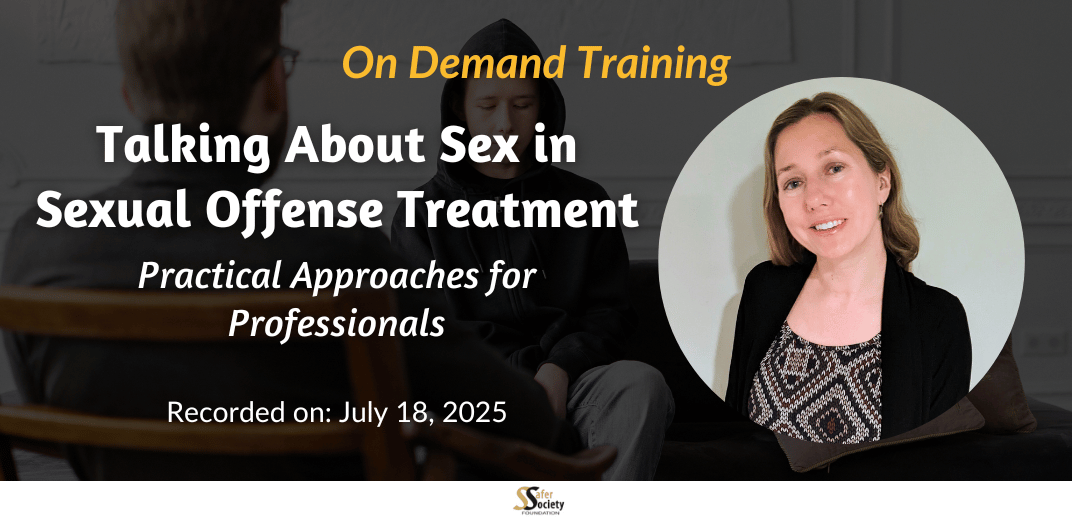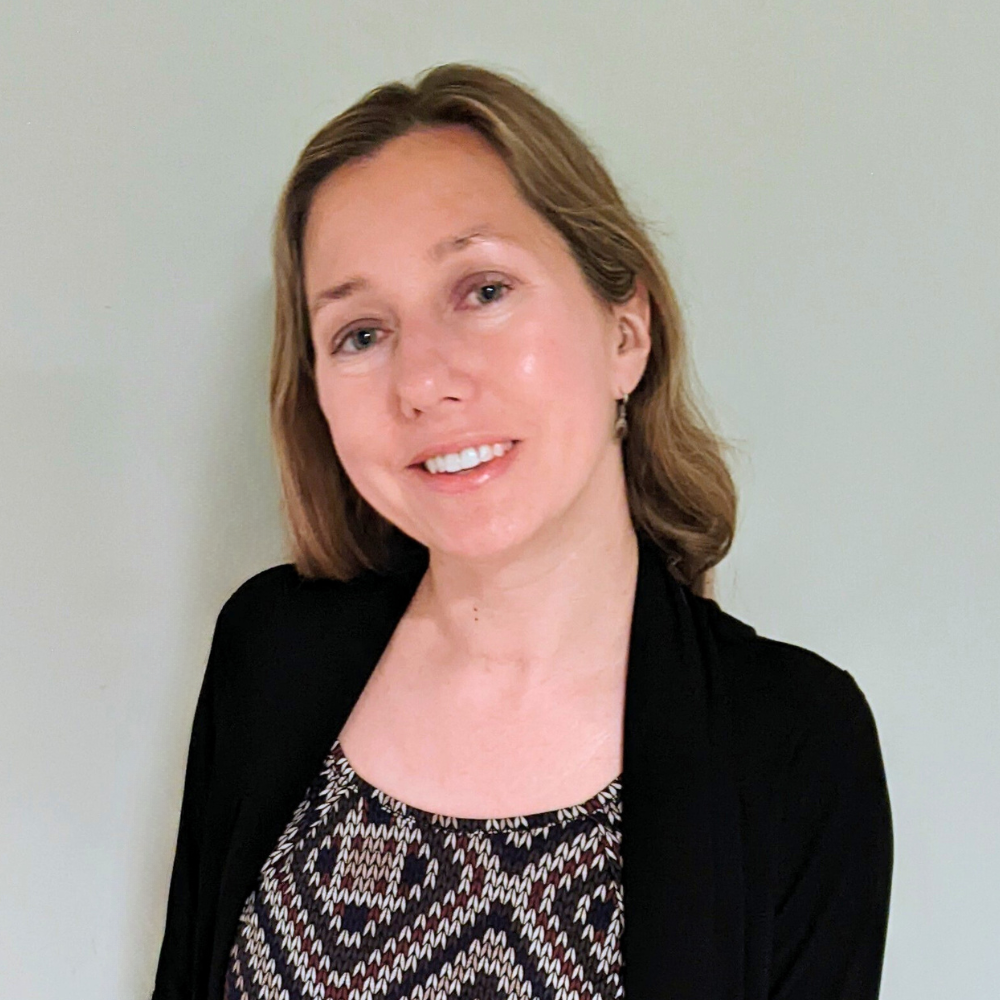
Talking About Sex in Sexual Offense Treatment: Practical Approaches for Professionals
Already purchased an On Demand training?
Click here to access your Safer Society On-Demand Training Center account.
Traditional approaches to sexual offense treatment focus on suppressing or controlling sexual urges, but research and clinical experience now emphasize the importance of promoting healthy sexuality as part of rehabilitation. For individuals with histories of sexual offending, addressing issues such as sexual dysfunction, negative self-image, intimacy problems, and deviant sexual scripts in treatment, can decrease the risk of reoffending.
 Unfortunately, many professionals experience discomfort and other challenges when discussing sexual topics with clients, leading to avoidance or negative messaging about sex and sexuality. Consequently, clients may not receive the support they need to explore their sexual interests, develop healthy sexual expression, and achieve treatment goals related to consensual and non-harmful sexuality.
Unfortunately, many professionals experience discomfort and other challenges when discussing sexual topics with clients, leading to avoidance or negative messaging about sex and sexuality. Consequently, clients may not receive the support they need to explore their sexual interests, develop healthy sexual expression, and achieve treatment goals related to consensual and non-harmful sexuality.
This presentation, developed by Nikole Nassen, PhD, focuses on how professionals can address sexual topics with adults in sexual offense treatment. Drawing on examples from the presenter’s practice, the training covers:
- Factors that inhibit clinicians and clients from discussing sexual interests and behaviors
- Strategies for introducing and addressing sexual topics in a therapeutic context
- Approaches for working with clients who present with paraphilias
- Guidelines for responding when clients disclose sexual attractions to clinicians
- Methods for processing and managing clinicians’ reactions to clients’ sexual interests
1) Explain why SOTP treatment providers need to talk about sex and why it’s difficult.
2) Describe techniques for how to talk about sex in various contexts of sexual offense treatment.
3) Initiate discussions about client sexual attractions and provider reactions when discussing sex in sexual offense treatment.
4) Use diverse techniques for discussing sex and sexuality.
Audience
This training is designed for professionals who work with adult clients who have sexually abused others. This includes mental health counselors, social workers, clinical psychologists, and forensic experts.
Content Level
Who's Presenting

Nikole Nassen, PhD
Nikole Nassen, Ph.D., is a clinical psychologist and the director of the Sex Offender Treatment Program at Naval Consolidated Brig Miramar. She has been involved in program development and implementation for Naval Corrections’ Violent Offender and Sex Offender Treatment Programs and has worked with individuals who have expressed non-traditional sexual interests in the context of these programs. Dr. Nassen is a Clinical Member of the Association for Treatment and Prevention of Sexual Abuse (ATSA) and is a member of ATSA’s Adult Clinical Practice Committee. She is also the Training Coordinator for the California Association for Treatment and Prevention of Sexual Abuse (CalATSA). Dr. Nassen received her doctorate degree in Clinical Psychology from Alliant International University in 2008. She has assessed and treated individuals who have committed violent and sexual offenses, as well as individuals with mental health concerns, in community and in correctional settings. She has also completed clinical and forensic evaluations of adults and adolescents for the Delinquency and Dependency Courts in San Diego.
